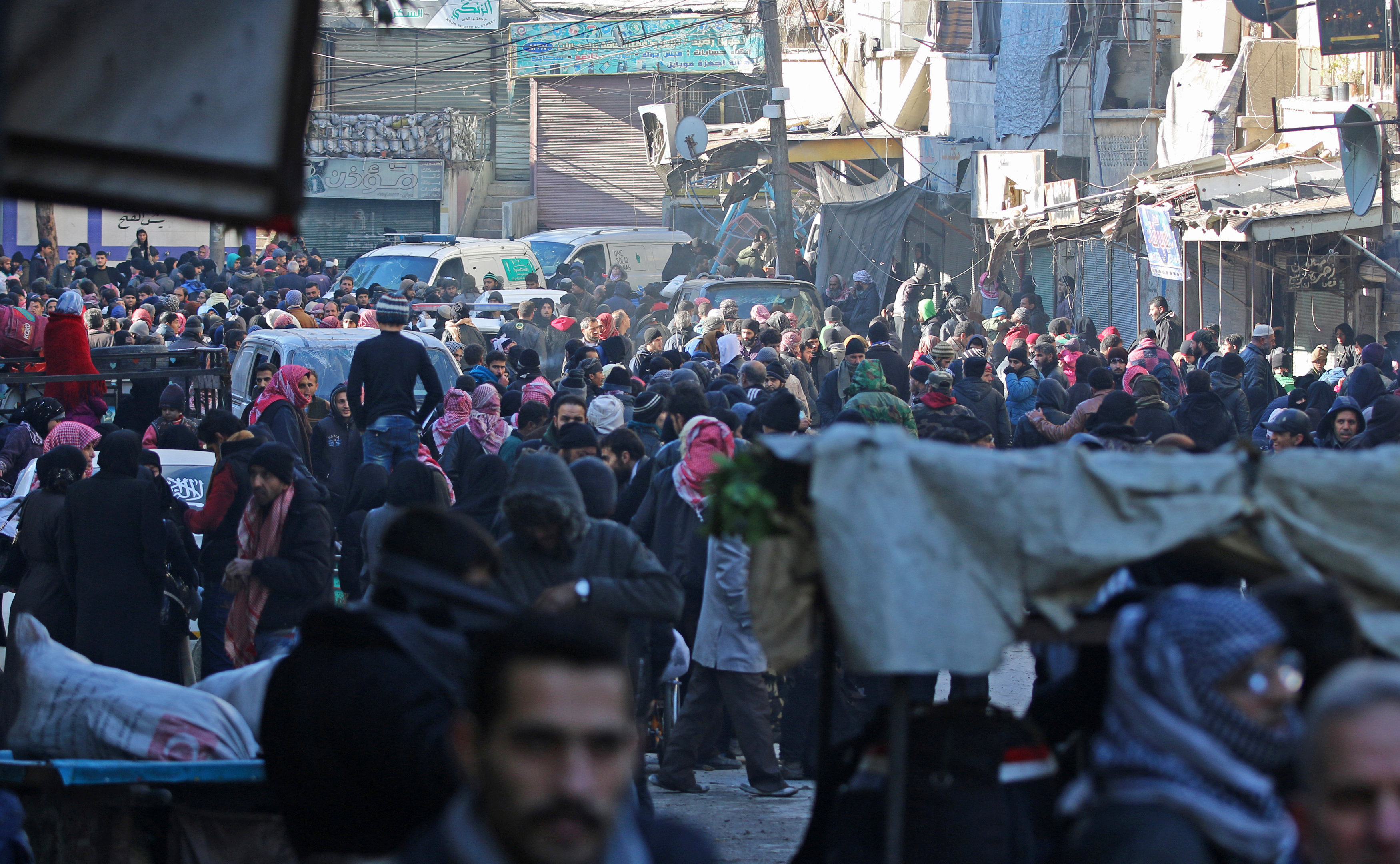
By Olzhas Auyezov and Suleiman Al-Khalidi
ASTANA (Reuters) – Syria’s warring sides met for talks for the first time in nine months on Monday, with frosty initial exchanges suggesting chances of a significant breakthrough were slim as the country’s six-year-old conflict ground on.
They sat opposite each other at a round table in a hotel conference room before a day of negotiations – sponsored by Russia, Turkey and Iran in Kazakhstan’s capital Astana – got under way.
Both delegations said the focus was on the country’s ceasefire, a fragile precursor to a wider political solution.
But Bashar al-Jaafari, the head of the delegation representing Syrian President Bashar al-Assad, said negotiators for the rebel forces had been rude and unprofessional, accusing them of defending “war crimes” committed by Jabhat Fateh al-Sham, the militant group formerly known as Nusra Front.
A rebel source said opposition representatives planned to negotiate with the government side only via intermediaries.
Mohammed Alloush, the head of the opposition delegation, told delegates he wanted to stop “the horrific flow of blood” by consolidating the shaky ceasefire and freezing military operations, saying Iran-backed militias had to leave Syria.
Russian news agency TASS cited a draft communique in which Moscow, Ankara and Tehran would commit to jointly fighting Islamic State and Jabhat Fateh al-Sham and set up a mechanism for trilateral monitoring of the ceasefire, which took effect on Dec. 30.
But fundamental divisions also remain between pro-Assad Russia and Turkey, which has supported anti-Assad rebels – including whether Syria’s president should stay in power or, as the rebels are demanding, step down.
There were no senior government figures among the delegations in Astana and Kazakhstan’s foreign ministry said it expected the meetings to be over by midday on Tuesday.
OVERSEEING CEASEFIRE
Some observers said the talks, which UN Special Envoy for Syria Staffan de Mistura is attending, could help jump-start U.N.-led negotiations that were suspended in late April.
De Mistura said it was crucial to get a mechanism to oversee and implement a nationwide ceasefire in place to build confidence.
“That by itself … would be a major achievement,” he said, adding he hoped Astana could pave the way for direct talks between the government and opposition in Geneva next month.
The Astana talks pointedly exclude the West, though Kazakhstan, with the backing of Moscow and Ankara, extended an invitation to the new U.S. administration last week, which Washington declined.
Iranian officials have said they strongly oppose U.S. involvement, though George Krol, the U.S. ambassador to Kazakhstan, attended as an observer.
Turkey and Russia – each for their own reasons – both want to disentangle themselves from the fighting. That has pushed them into an ad hoc alliance that some people believe represents the best chance for progress towards a peace deal, especially with Washington distracted by domestic issues.
The opposition arrived in Astana aware that the fall of their former urban stronghold, Aleppo, has shifted the momentum in the fighting in favor of Assad.
On Sunday, war planes bombed rebel-held areas of western Syria, killing 12 people in one location, the Syrian Observatory for Human Rights said, while insurgent shelling of Aleppo killed six.
“The ceasefire is clinically dead, but the Russians and Turks want to keep it alive to send a message to the international community that they are the ones in charge of the Syrian situation,” said Observatory director Rami Abdulrahman.
(Additional reporting by John Irish, Denis Dyomkin and Kinda Makieh in Astana, Michelle Nichols at the United Nations, Bozorgmehr Sharafedin in Dubai and Thomas Perry in Beirut; Writing by Olzhas Auyezov/Christian Lowe/Andrew Osborn; Editing by John Stonestreet)




















